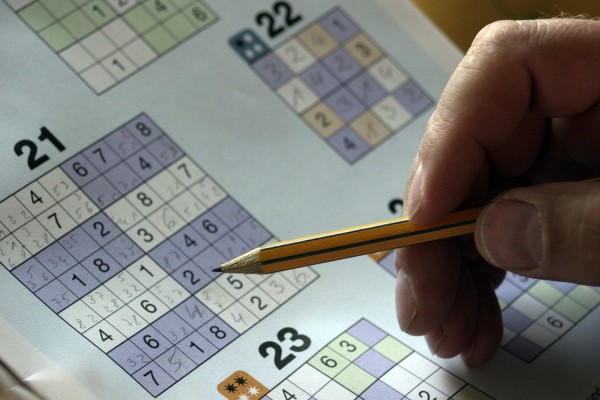Could Sudoku Puzzles Cause Seizures? A Look at Intense 3D Imagination

Sudoku puzzles are undeniably brainteasers. However, a 25-year-old man's brain had a rare reaction to solving this puzzle: He developed seizures.
Sudoku puzzles are undeniably icebreaking brainteasers. However, a 25-year-old man's brain had a rare reaction to solving the said puzzle--he developed seizures.
According to a report in 2015, this man from Germany did not always have this reaction to Sudoku.
His problems started after an accident he encountered while he was on a ski trip. The young man had reportedly been skiing with a friend in 2008 when a landslide took place on the mountain.
The case report indicated that the accident led to the burying of the victim in the snow, and he lost consciousness.
The man was lucky that he went skiing with a friend who happened to be a paramedic. His buddy rescued him and immediately began CPR. This was according to neurologist Dr. Berend Feddersen, who was also the case report's lead author.
Feddersen also said that the man had a ruptured spleen and a hip fracture. Additionally, he got buried under the snow, from which his brain and body tissues had a little amount of oxygen. This condition is known as hypoxia.
ALSO READ: What Are Beef Tapeworms? | 2016 Case: 20-ft Tapeworm Stayed in Intestine 2 Years Before Diagnosis
Muscle Twitches
As a result of the patient's brain being deprived of oxygen for 15 minutes, he developed a condition also known as myoclonic jerks or "sudden muscle twitches."
Such twitches took place in the muscles of the man's mouth when he talked. The myoclonic jerks also presented in both legs' muscles when he walked.
At the hospital, the young man began to experience a seizure, which Feddersen identified as "spontaneous clonic seizures in his left arm.
This seizure type, the medical expert explained, involves stiffening of the muscle, and then twitching swiftly, but rhythmically. To address the condition, the doctors specifically prescribed the patient anti-epileptic drugs to keep the seizure manageable.
DON'T MISS THIS: This Man's Bladder Got Encased in Calcium, Doctors Think This Is Why
Seizure-Causing Sudoku
Several weeks later, the patient was transferred from the hospital to a rehabilitation center for his recovery to continue.
During his free time, the man tried to solve a Sudoku puzzle, which he enjoyed doing a lot. However, while solving the said number puzzle, he again started experience clonic seizures once again in his arm.
The doctors found that such seizures were activated since the man had an "intense three-dimensional imagination" that triggered each time he was solving a Sudoku puzzle.
Dr. Feddersen said three-dimensionally imagining the numbers allowed him to arrange and put them in sequence.
According to the doctor, such seizure was not taking place when the man completed other types of problems, or even while reading.
The cause of such seizures started just after the avalanche was, because the hypoxia led in the inhibitory fibers' death, slowing down signaling of the brain, in the man's brain's right centro-parietal region.
How the Seizures Stopped
The doctors also discovered that when the patient had an intensely activated 3D imagination while he solved Sudoku, the seizures in his left arm were even stronger.
And when he stopped the said imagination, the seizures stopped instantaneously. Therefore, he had no choice but to give up solving the number puzzle.
The last time Feddersen saw this patient was in 2014. He was still affected by the twitches, but such symptoms have improved through physical therapy.
For over five years, the man has been seizure-free. The seizure stopped due to the man's regular intake of anti-epileptic medication.
IN CASE YOU MISSED THIS: Fish Jaw Found in the Eye of a Beachgoer: Here's What Happened
Jul 29, 2020 06:30 AM EDT





